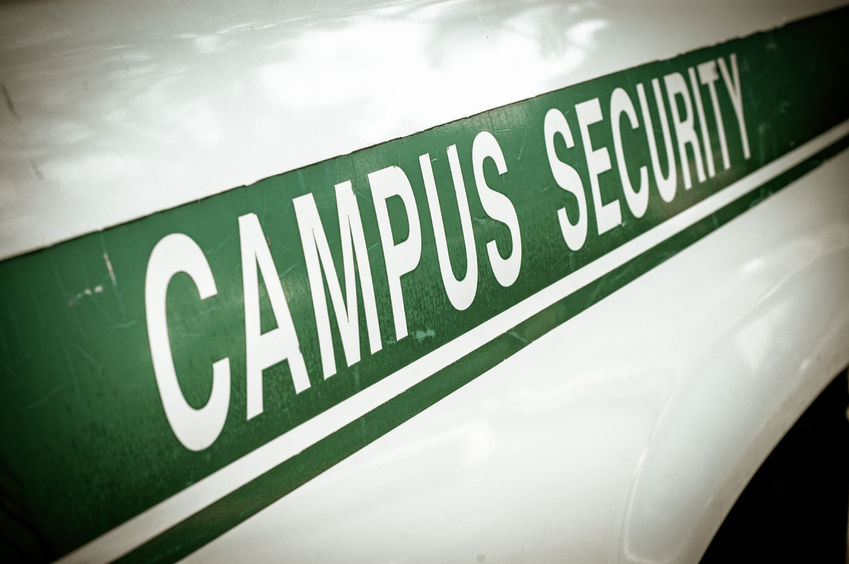2019 College Safety Tips
August 21, 2019 | Category: Personal Injury | ShareGoing off to college is a right-of-passage for many young people and their families, and following college acceptance, a lot of time is often spent in preparation. This preparation includes decisions such as courses, residences, roommates, personal equipment, and other issues. However, safety needs to be a primary concern for everyone when preparing for the college experience. Over the past few years, the news media has covered campus accidents caused by binge drinking, drinking while driving, and sexual assaults on college campuses.
 Binge Drinking
Binge Drinking
The American Addiction Centers says that alcohol is the most commonly abused substance for young people ages 12-20 in the United States. These teens and young adults account for 11 percent of all the alcohol consumed, more than 90 percent of which is consumed by binge drinking, according to the National Institute of Alcohol Abuse and Alcoholism. Binge drinking can lead to risky behavior and other dangers.
Dr. Elizabeth Hartney recommended "5 Ways to Say No to Alcohol" on VerywellMind.com. Young people may use these tips when they are confronted with a difficult situation involving alcohol and drugs.
Driving Under the Influence
Mothers Against Drunk Driving (MADD) says that drunk driving is still the #1 cause of death on our highways. The University of Missouri suggests Ways to Prevent Drinking and Driving.
Sexual Assault
An estimated 95 percent of campus rapes go unreported in the United States, according to the American Civil Liberties Union (ACLU). Of those reported, the United States Department of Justice highlights the statistic that one out of every four female undergraduates is a victim of some form of sexual assault before graduation.
The definition and understanding of consent and sexual assault have come more to the forefront of public discussion recently, following the beginning of the #MeToo movement. It is important for both male and female students to have a clear understanding of consensual behavior on campus.
AffordableCollegesonline.org provides a good overview covering such areas as
- What is consent?
- What does consent sound and look like?
- What consent does not sound like
- Understanding non-verbal clues
On-Campus Accidents
College safety has been improved over the years thanks to the enactment of the Clery Act. The Clery Act was named for Jeanne Clery who was the victim of a rape and murder on the campus of Lehigh University in 1986.
The legislation requires all campuses to have detailed emergency alert systems in place along with comprehensive crime reporting statistics. The legislation has eight main provisions:
- Report on seven major crime categories -The following major crime categories are covered under this legislation: criminal homicide, sexual assault, aggravated assault, robbery, burglary, motor vehicle theft, and arson.
- Disclose crime statistics for incidents within a set area -Schools must track, record and report on crimes that occur on campus, near campus and off campus facilities.
- Maintain a public crime log -This document must record the "nature, date, time and general location of each crime" within two days of its occurrence. It must be readily available to the public during normal business hours.
- Publish an Annual Security Report by October 1st -This report, which must be made available to all current and prospective students and employees, details the past three years of crime on campus.
- Issue timely warnings of Clery Act crimes -Schools must develop a method by which they can quickly notify all students and employees of an incident which qualifies for reporting in the Annual Security Report.
- Implement an emergency response, notification and testing policy -If a situation poses an imminent threat to members of the campus community, a school must have procedures in place to notify all individuals as soon as possible.
- Compile and publish an annual fire safety report - Applicable only to institutions with on-campus housing, this requirement stipulates that schools must record and publish all instances of fires in on-campus housing.
- Enact policies and procedures to handle reports of missing students - Because the first moments after a student goes missing are so critical in helping find the individual, all schools must have a process in place to deal with missing person cases rapidly and effectively.
“Students have the right to enjoy and benefit from the campus experience. They should not have to deal with campus safety issues. However, should you or a loved one be injured on a college campus because of the negligence of another, please contact us. We have the experience to assist you, and there are no costs or attorney fees unless we make a monetary recovery for you,” said Fort Myers Personal Injury Lawyer Randall Spivey of Spivey Law Firm, Personal Injury Attorneys, P.A.
Fort Myers Personal Injury Lawyer Randall L. Spivey is a Board Certified Trial Attorney – the highest recognition for competence bestowed by the Florida Bar and a distinction earned by just one (1%) percent of Florida attorneys. He has handled over 2,000 personal injury and wrongful death cases throughout Florida. For a free and confidential consultation to discuss your legal rights, contact the Spivey Law Firm, Personal Injury Attorneys, P.A., in Lee County at 239.337.7483 or toll free at 1.888.477.4839,or by email to Randall@SpiveyLaw.com. Visit SpiveyLaw.com for more information. You can contact Spivey Law Firm, Personal Injury Attorneys, P.A.in Charlotte County at 941.764.7748 and in Collier County 239.793.7748.

